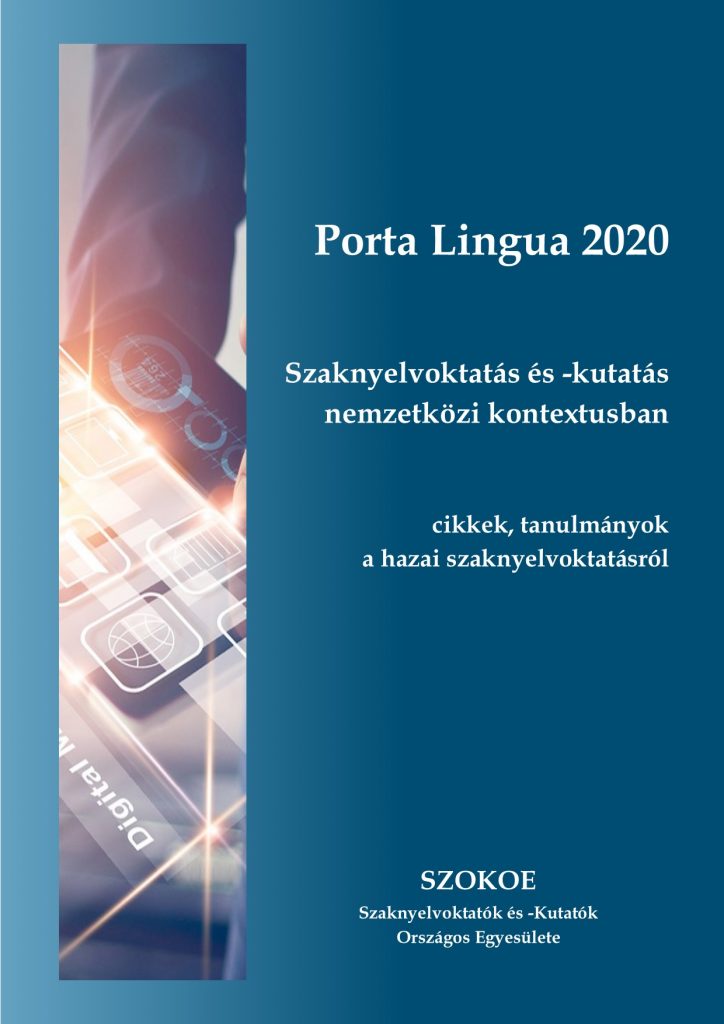Eklics Kata - Fekete Judit
The role of simulation practices in acquisition or activation of medical terminology
In: Bocz, Zs. – Besznyák, R. (eds) (2020): Porta Lingua 2020. Szaknyelvoktatás és -kutatás nemzetközi kontextusban. Cikkek, tanulmányok a hazai szaknyelvoktatásról. SZOKOE: Budapest. 103-110
DOI: https://doi.org/10.48040/PL.2020.9
Absztrakt
Medical terminology is a specific code, also labelled as the language of medical communication. Methods including simulation-based doctor-patient encounters enable students to start using that language already during their undergraduate years, often prior to or parallel to their clinical practices. Yet, one party in the conversation – mainly the patient – is most often unable to use that code. The simulation-based history taking course at the University of Pécs facilitates the students’ improvement of awareness in code-switching from a doctor-patient scenario to a doctor-doctor or health personnel scene. Focusing on fundamental elements of the specific language use, students have a chance to revise medical and/or more precisely, clinical terminology by simplifying, defining terms to lay patients – simulated by actors –, as well as present the term-loaded case history to a fellow colleague. Thus, by awareness raising, theoretical knowledge of previous years may be activated. The paper introduces how history taking simulations and case presentations in the English programme empower medical students in the confident use of medical terminology.
Keywords: awareness raising, case presentation, code-switching, medical terminology, simulation practices


 Porta Lingua 2020
Porta Lingua 2020